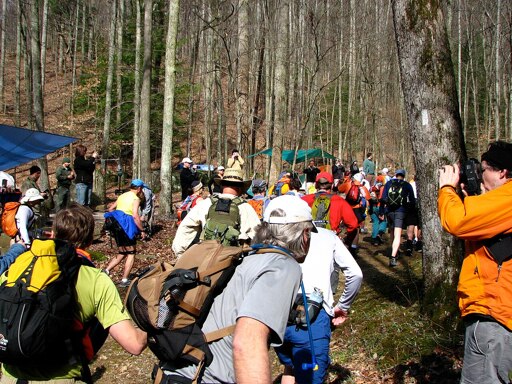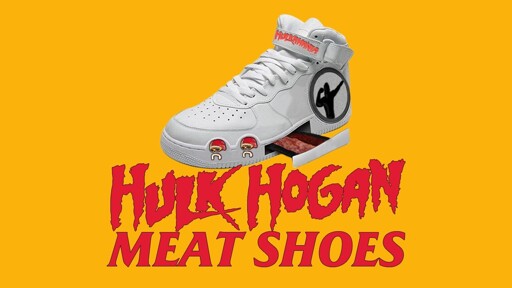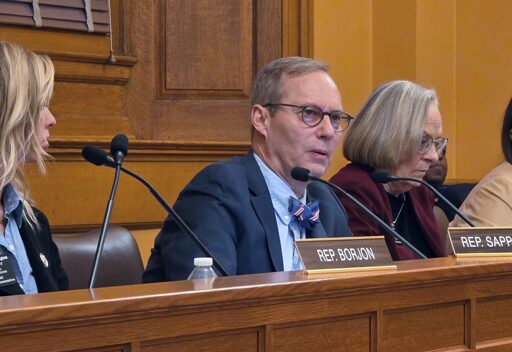- 185 Posts
- 1.86K Comments

 3·5 days ago
3·5 days agoAmazing how much the difference between “ephebophilia” and “pedophilia” was debated in early 2010’s Reddit. You’d get mobbed with “free speech” warriors if you brought up how fucked up it was that there was a “jailbait” subreddit.

 2·5 days ago
2·5 days agoYou understand that people on 4chan make stuff up when breaking news happens? It’s a time honored tradition to find a random picture of a trans woman every time a school shooting happens and say it is her. You’re doing the equivalent of going to Stormfront or Alex Jones for breaking news.

 72·5 days ago
72·5 days agoThe guy who shot Charlie Kirk possibly had a trans girlfriend, and that’s all we heard about for weeks. The fact that the school shooter in Canada last week was trans is all half the media is talking about.
If the media is going to have a meltdown any time a trans person is adjacent to something bad, we can celebrate something like this.

 1·5 days ago
1·5 days agoUh, no this is not “personal” for me.
Why do people feel a need to do “but what about the men?” every time this topic comes up? No one is smearing shit into the bloody penis of a baby. They are not comparable.

 2·5 days ago
2·5 days agoThese are not comparable issues. I am against male circumcision, but people need to stop acting like the two things are anywhere near each other.
Heres “type 3” circumcision. Feel free to check out Wikipedia to see what “type 4 entails.”
Type III (infibulation or pharaonic circumcision), the “sewn closed” category, is the removal of the external genitalia and fusion of the wound. The inner and/or outer labia are cut away, with or without removal of the clitoral glans.[h] Type III is found largely in northeast Africa, particularly Djibouti, Eritrea, Ethiopia, Somalia, and Sudan (although not in South Sudan). According to one 2008 estimate, over eight million women in Africa are living with Type III FGM. According to UNFPA in 2010, 20 percent of women with FGM have been infibulated. In Somalia, according to Edna Adan Ismail, the child squats on a stool or mat while adults pull her legs open; a local anaesthetic is applied if available: The element of speed and surprise is vital and the circumciser immediately grabs the clitoris by pinching it between her nails aiming to amputate it with a slash. The organ is then shown to the senior female relatives of the child who will decide whether the amount that has been removed is satisfactory or whether more is to be cut off.
”After the clitoris has been satisfactorily amputated … the circumciser can proceed with the total removal of the labia minora and the paring of the inner walls of the labia majora. Since the entire skin on the inner walls of the labia majora has to be removed all the way down to the perineum, this becomes a messy business. By now, the child is screaming, struggling, and bleeding profusely, which makes it difficult for the circumciser to hold with bare fingers and nails the slippery skin and parts that are to be cut or sutured together. …”
Having ensured that sufficient tissue has been removed to allow the desired fusion of the skin, the circumciser pulls together the opposite sides of the labia majora, ensuring that the raw edges where the skin has been removed are well approximated. The wound is now ready to be stitched or for thorns to be applied. If a needle and thread are being used, close tight sutures will be placed to ensure that a flap of skin covers the vulva and extends from the mons veneris to the perineum, and which, after the wound heals, will form a bridge of scar tissue that will totally occlude the vaginal introitus.
The amputated parts might be placed in a pouch for the girl to wear. A single hole of 2–3 mm is left for the passage of urine and menstrual fluid. The vulva is closed with surgical thread, or agave or acacia thorns, and might be covered with a poultice of raw egg, herbs, and sugar. To help the tissue bond, the girl’s legs are tied together, often from hip to ankle; the bindings are usually loosened after a week and removed after two to six weeks. If the remaining hole is too large in the view of the girl’s family, the procedure is repeated. The vagina is opened for sexual intercourse, for the first time either by a midwife with a knife or by the woman’s husband with his penis. In some areas, including Somaliland, female relatives of the bride and groom might watch the opening of the vagina to check that the girl is a virgin.The woman is opened further for childbirth (defibulation or deinfibulation), and closed again afterwards (reinfibulation). Reinfibulation can involve cutting the vagina again to restore the pinhole size of the first infibulation. This might be performed before marriage, and after childbirth, divorce and widowhood. Hanny Lightfoot-Klein interviewed hundreds of women and men in Sudan in the 1980s about sexual intercourse with Type III:
”The penetration of the bride’s infibulation takes anywhere from 3 or 4 days to several months. Some men are unable to penetrate their wives at all (in my study over 15%), and the task is often accomplished by a midwife under conditions of great secrecy, since this reflects negatively on the man’s potency. Some who are unable to penetrate their wives manage to get them pregnant in spite of the infibulation, and the woman’s vaginal passage is then cut open to allow birth to take place. … Those men who do manage to penetrate their wives do so often, or perhaps always, with the help of the “little knife”. This creates a tear which they gradually rip more and more until the opening is sufficient to admit the penis.”

 17·9 days ago
17·9 days agoAre you really comfortable with Meta having videos of your children?
because most US therapists don’t know that much about autism.
Fun fact - many textbooks still say girls can’t be autistic. I tutor psychology occasionally and I’ve seen it more than once.
They greased the ammo with it. Another company made gun oil with lard in it.
Lemmings are unable to think rationally when someone brings up the fact that porn can be harmful.
I hate grape flavoring as well, and always have. Actual grapes? Delicious. Raisins? Also great. But candy pretending to be grape flavored just feels like a chemical approximation of the worst flavors in a grape.
Cherry is also shit. I love cherries, my ideal relationship is where I get the cherries from the milkshakes and give the pickles from whatever. But cherry flavored candy or soda or whatever, unless it’s a nice place and they’re just pouring maraschino juice in your drink, tastes like being 6 and being forced to drink cough syrup.
Makes me think of those stupid assholes who sell ammo with pig lard in it. As if God would be mad that you touched pig because some guy shot you with it.

 5·11 days ago
5·11 days agoThe ones for children are even worse. Zero accountability. Adults with no reason to ever be supervising a child.
For more context, about ten years ago a bunch of shit heels (the “sad puppies”) got mad that “woke” books were winning Hugo awards, so they started a movement to mess with the nominations. Tingle’s “Space Raptor Butt Invasion” got nominated as a troll, but Tingle is a really cool guy and turned it around on them by writing “Pounded in the Butt by my own Hugo Award Nomination.”

 16·12 days ago
16·12 days agoSomething critical to note is that help is not really out there. This is the kind of news article that usually gets people to post 988, but if you’ve called 988 you know how much of a joke it is. They will “triage” you, where you either get the cops called to take you to hell/inpatient or you spend half an hour plus on hold for someone to say “sorry that sucks :(“
Inpatient institutionalize increase suicide rates after release. You get maybe fifteen minutes of actual “treatment” while the rest of it is being treated like a criminal. Good luck keeping your job after disappearing three days without being allowed to access your phone!
It amazes me when I see TikToks and videos from patients in inpatient facilities in other countries. In the US, wanting to kill yourself means that you are a horrible criminal and you will be punished for it.

 14·12 days ago
14·12 days agoThe superintendent in Mustang Oklahoma suspended all of the kids who walked out.
I remember reading like a Williams-Sonoma catalog that had several “pear of the month” clubs, and wondered how so many people were so into luxury pears.
I applied for a federal job, was given an offer, and had that offer revoked because of Trump’s EO against trans people. This government is actively hostile to my existence and provides me little in return, so yes.

 3·12 days ago
3·12 days agoCatholics aren’t opposed to it.
Father Funes went on to say that Christ’s incarnation and sacrifice was a unique and unrepeatable event. But he said he was sure that, if needed, God’s mercy would be offered to aliens, as it was to humans.
I don’t think this is like official doctrine, but it seems to be the most common attitude I’m finding.
As far as Protestants: the flat earth types might be against aliens because that goes against their everything. I’m really only talking your KJV-onliest or freaky Pentecostal teetering into cult types that would think aliens were literal demons.
But I think most fundies would probably be fine with aliens if they were allowed to proselytize to them, and most mainline Christian churches would be fine with aliens existing.
Is it like Grindr (eg, mostly male + hookups)?













Do we think this CEO fucks his employees too?
What even qualifies someone to be a CEO? Is it the MBA or whatever? I’ve been doing writing coach work for business majors and it’s just amazing how easy the work is. Imagine your term paper being “write a professional email.”